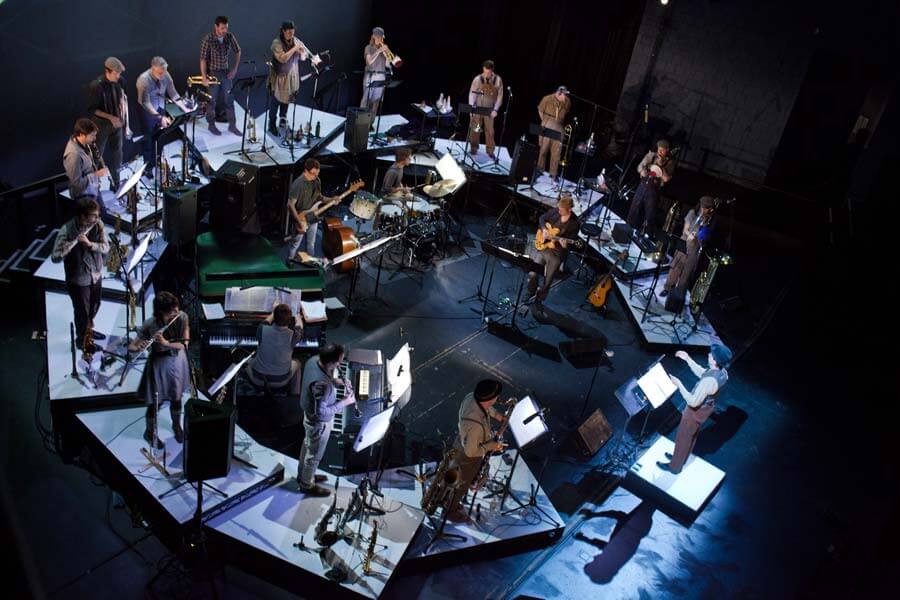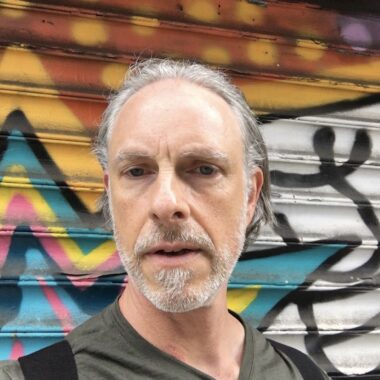Beethoven was born 250 years ago this year. What this fact has to do with jazz, in the musical sense, is very little. But it does have to do with the formation of a body of work that represents the aesthetic virtues and values of an art—in other words, what the academies and institutions call a canon.
Classical music did not even exist as a genre before Beethoven died, and it was the revolutionary, astounding greatness of his work that formed the foundation on which classical music, and its canon, was built by musicians and composers, critics and audiences. Since then, this canon has been the subject of constant modification and growing debate, not only as to what’s in it (and particularly who’s been left out) and why, but why it even exists.
This is not the place for that discussion, instead, this is about the jazz canon, and who gets in, how, and why. Part of this is plain as can be; musicians who were instrumental in the origins of jazz are of course part of the canon. Jazz would not exist without King Oliver, Louis Armstrong, Jelly Roll Morton, Bix Beiderbecke, Duke Ellington, Benny Goodman, and others. You can’t take them out (which is also why you can’t remove Beethoven from the classical canon). Revolutionaries and modernists are also ensconced—Charlie Parker, Dizzy Gillespie, Thelonious Monk, Miles Davis, Cecil Taylor, Charles Mingus, John Coltrane, Ornette Coleman, Herbie Hancock. Much of modern music, including rank and hip hop, would not exist without those figures.
(By now I’m sure I’ve left out one of your favorites, like Sonny Rollins. I apologize, these lists are representative, not in any way comprehensive. There’s only so many inches on this page.)
At this point, the canon is pretty clear and safe, all these musicians are the subject of every meaningful jazz training program and performing institutions like Jazz at Lincoln Center and SF Jazz, not to mention their legacy is fundamental to every jazz musician’s practice. From here, things get more interesting, more ambiguous. Should we include Jackie McLean and Steve Lacy, two superb and unique musicians who, in each their own way, bridged tradition and the avant-garde? I do, but only McLean’s influence is at all clear. And that criteria means that Michael Brecker, who has been immensely important to at least two generations of tenor saxophonists, is in. He should be. What about Joe Zawinul and Wayne Shorter, who used fusion to develop a world music connection? I say yes, again.
There’s no guitarists so far mentioned, and though there have been so many grant jazz guitarists, from Charlie Christian to Julian Lage, I have trouble fitting them into the canon, as in, did the music’s existence depend on them? This is likely controversial, but I don’t think it does until Pat Metheny and Bill Frisell came along (the canon is not primarily about greatness but importance, which is why Beethoven is in but Franz Berwald, who wrote wonderful symphonies, is not).
Singers are also tricky. Which ones shaped jazz? Billie Holiday did, so did Frank Sinatra. Bing Crosby did too, even though he and Sinatra weren’t jazz singers. But I don’t think Ella Fitzgerald did, as much as I love her (I listen to her much more then the other three). Betty Carter has to be in the canon, not only for creating a new way to sing but for training so many young musicians in the art of modern jazz.
Then there’s the unusual subject of jazz composing. Inside that is the conflict between composition and improvisation, but if anything is at the center of a canon, it’s the established body of material from which musicians work. So, Ellington of course, Monk, Mingus. Also, Gershwin and the Great American Songbook composers. This is very much like Beethoven—musicians wanted to play what Beethoven wrote, they wanted to return to it again and again, and so a music that was always new became a past that was repeated and, hopefully, renewed. A classical music.
Jazz composers are still with us, of course. Shorter is one, his tunes are secure in the modern repertoire. There are others who face the Steve Reich problem; they write for their own ensembles and don’t yet have others adopting their work, or they’ve made a lot of good recordings which people dig, but the pieces haven’t yet become part of any repertoire. An example is the composer and big band leader Gerald Wilson, whose work has been justly celebrated this year, but so far mostly belongs only to his own legacy.
This just takes time. Other musicians and groups eventually started to play Reich’s work—there are now a half-dozen recordings of Music for 18 Musicians, and I’ve seen more performances of it by groups that are not the Steve Reich Ensemble—as they eventually will play the music of Henry Threadgill and Darcy James Argue. There are a handful of Threadgill tunes on records by other musicians, and there are a growing number of players who have been through his band and picked up a good dose of his angular, funky rhythms and harmonies. And while Argue has worked mainly through his Secret Society big band, he’s been able to connect his work with the visual arts and moving images in ways that are unique in the history of jazz, and I have to believe this will lead to more groups picking up his scores, or at least arranging them.
Hell, even Ellington started out writing music for just his own, special band.
And all this is just a long way to say, pull out those records, dig through the streaming series. We’re still a long way from the nightclubs and other live venues opening for audiences. If the Metropolitan Opera’s recent announcement was a measure, and I’m certain it was, the performing scene won’t be making a substantial return until September, 2021, once a vaccine has had the time to work its way through the population.
In the meantime, you, my Red Hook neighbor, can check out the live music composer and musician Julian Bennett Holmes organizes Sundays at 6pm on the corner of Richards and Commerce streets. Or keep track of what’s happening in the parking lot by the Mary Whalen at the ferry landing, because music kind of materializes there on the weekends. You can also watch a movie of Argue’s Real Enemies, an amazing musical treatment of political paranoia in American history, which will premiere at the Cal Performances website (calperformances.org) October 21, just in time to get you ready for Election Day 2020, when the shit hits the fucking fan.
Author
-

George Grella wrote the book on Miles Davis’ Bitches Brew. He write other stuff too. killyridols.substack.com/
View all posts
George Grella wrote the book on Miles Davis’ Bitches Brew. He write other stuff too. killyridols.substack.com/











4 Comments
Pingback: Song about Canon Song - Red Hook Star-Revue love - Love Songs
Pingback: Canon Song - Red Hook Star-Revue | ServiceMedia.xyz
Pingback: Canon Song - Red Hook Star-Revue | Services1.xyz
Pingback: Canon Song - Red Hook Star-Revue - s247.club